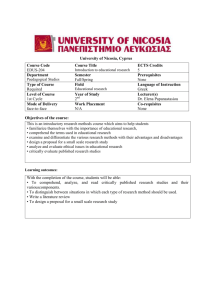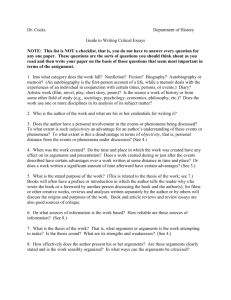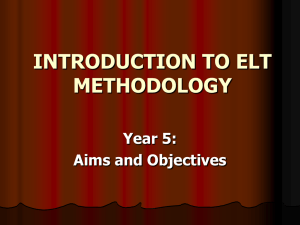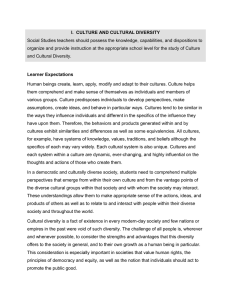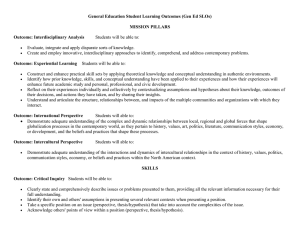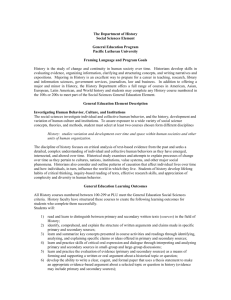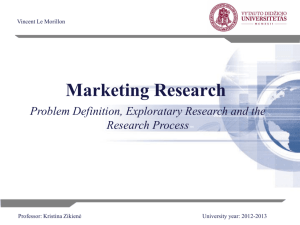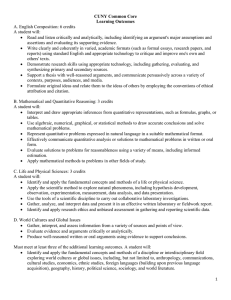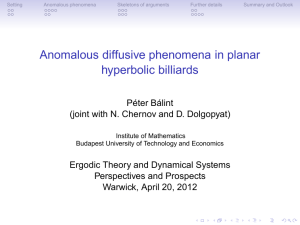REPORT FROM THE TASK FORCE ON STUDENT LEARNING GOALS AND... MISSION PILLARS Students will be able to: Goal: Interdisciplinary Analysis
advertisement
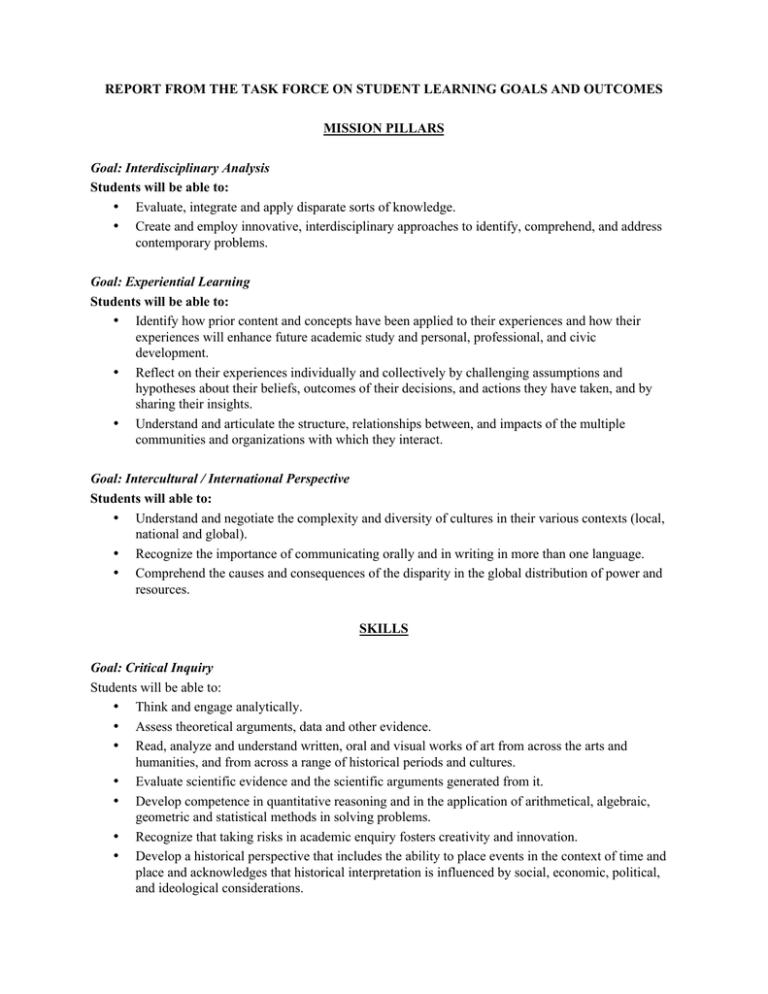
REPORT FROM THE TASK FORCE ON STUDENT LEARNING GOALS AND OUTCOMES MISSION PILLARS Goal: Interdisciplinary Analysis Students will be able to: • Evaluate, integrate and apply disparate sorts of knowledge. • Create and employ innovative, interdisciplinary approaches to identify, comprehend, and address contemporary problems. Goal: Experiential Learning Students will be able to: • Identify how prior content and concepts have been applied to their experiences and how their experiences will enhance future academic study and personal, professional, and civic development. • Reflect on their experiences individually and collectively by challenging assumptions and hypotheses about their beliefs, outcomes of their decisions, and actions they have taken, and by sharing their insights. • Understand and articulate the structure, relationships between, and impacts of the multiple communities and organizations with which they interact. Goal: Intercultural / International Perspective Students will able to: • Understand and negotiate the complexity and diversity of cultures in their various contexts (local, national and global). • Recognize the importance of communicating orally and in writing in more than one language. • Comprehend the causes and consequences of the disparity in the global distribution of power and resources. SKILLS Goal: Critical Inquiry Students will be able to: • Think and engage analytically. • Assess theoretical arguments, data and other evidence. • Read, analyze and understand written, oral and visual works of art from across the arts and humanities, and from across a range of historical periods and cultures. • Evaluate scientific evidence and the scientific arguments generated from it. • Develop competence in quantitative reasoning and in the application of arithmetical, algebraic, geometric and statistical methods in solving problems. • Recognize that taking risks in academic enquiry fosters creativity and innovation. • Develop a historical perspective that includes the ability to place events in the context of time and place and acknowledges that historical interpretation is influenced by social, economic, political, and ideological considerations. Goal: Communication Students will be able to: • Present coherent written and oral arguments with correct grammar and syntax. • Apply computer technology to depict concepts and data visually. • Access needed information effectively and efficiently • Evaluate information and its sources critically, and incorporate primary and secondary sources into essays, reports and other forms of communication. • Recognize the economic, legal, social and ethical issues surrounding the use of information. KNOWLEDGE Goal: In-Depth Knowledge Students will be able to: • Demonstrate proficiency and depth of knowledge in their major field of study Goal: Understanding of the World in Which We Live Students will be able to: • Understand the basic fundamentals of scientific methods that are used to comprehend and explain natural phenomena, and be aware of the place of science knowledge in contemporary culture and history. • Study and analyze social phenomena. • Recognize the properties and importance of a healthy environment, and the benefits of environmentally sustainable practices. VALUES AND RESPONSIBILITY Goal: Awareness Students will be able to: • Become more aware of their own individual values and ideals, and to think and reflect on the moral and civic dimension of issues, problems and matters of individual and public concern. • Appreciate the perspectives of others on issues of individual and public concern. Goal: Engagement Students will be able to: • Act and communicate critically about issues, problems and matters of public consequence. • Use both political and non-political processes to promote community well-being.
